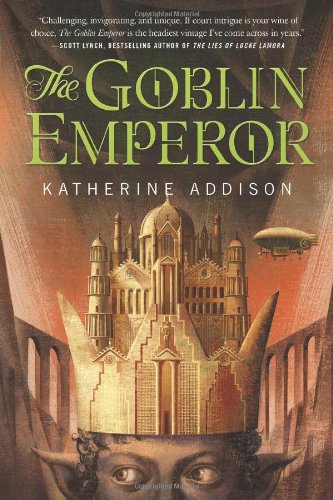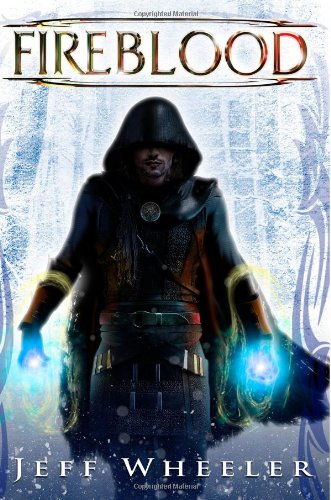This isn't just back-story for Batman fans, though. Batman fans will enjoy watching Bruce Wayne's eventual foes develop into the supervillains only Batman can battle – some, as they ascend in the criminal ranks … and some, as they work alongside the protagonists as apparent allies, not yet having turned to the dark side, or perhaps not yet getting caught. But the villains' ascent and Gordon's fight against Gotham's corruption offer story enough without needing to see how young Bruce Wayne becomes Batman (a story we've seen depicted enough not to be exactly on the edge of our seats about).
The writing is patient: it shows us characters we know become major parts of the Batman canon, building anticipation for their development into the personas into which we know they will evolve. It doesn't rush this. At the same time, though, the writers understand viewers want to see stories end with episodes: we get fully-formed stories involving characters with which the audience is unfamiliar, which allows surprises. And it does more: it allows us to look at the characters while they are still malleable, still fully human, and before they have become roles in a comic book. The show's chief, Bruno Heller, understands exactly why these characters are more interesting before they don their capes and masks:
Frankly, all those superhero stories I’ve seen, I always love them until they get into the costume. And then it’s, “Oh, okay, they’ve ascended, they’ve stopped becoming humans.” It’s their apotheosis. They go to heaven and they’re Superman. There have been so many great versions of it. This is a version of something else entirely.
Bruno Heller, interviewed by Entertainment WeeklyAnd the acting is outstanding. Just. Outstanding.
 Although the show is built around the police work of James Gordon, it's hard not to start with Gotham's rising villains. Jada Pinkett Smith's Fish Mooney is such a gloriously ambitious crime boss, just waiting to take the crime-lord crown from the old guard gangster running Gotham, that you can't help cheering for her bloody advance. She's that good.
Although the show is built around the police work of James Gordon, it's hard not to start with Gotham's rising villains. Jada Pinkett Smith's Fish Mooney is such a gloriously ambitious crime boss, just waiting to take the crime-lord crown from the old guard gangster running Gotham, that you can't help cheering for her bloody advance. She's that good.Robin Lord Taylor's Oswald Cobblepot begins his ascent-to-supervillany character arc in the very first episode, in which he acts as Fish Mooney's umbrella-holding toady and must suffer jeers and sleights with stoic endurance as, for example, his post-leg-injury gait earns him the undesired nickname "Penguin". He's so obviously not a supervillain – yet – that it's hard not to ask how this pipsqueak becomes a feared Gotham crime lord. It's delightful to see just how awful the timid-looking toady proves to be once set in motion, how he develops in strength as he manipulates and threatens and kills … hard not to watch. It's a much faster development than we see from the child Bruce Wayne, which offers us patience for the longer plot arcs. And Taylor's so compelling in the role you can't help cheering his Cobblepot against his criminal competitors.
When is Cory Michael Smith's Edward Nygma going to snap? We keep seeing him as a crime scene tech. But one day – one day …. Selena Kyle, portrayed by Camren Bicondova, isn't a villain yet, just a street-smart survivalist with sticky fingers. (And a host of survival skills to teach young master Bruce!) There's plenty of mid-level thugs, including one played by David Zayas (as "Don" Sal Marone), but they become burdensomly numerous. Behind them all stand John Doman's crime boss "Don" Carmine Falcone – maybe the most vanilla villain on the show, but plenty scary for all that.
But the show is built around James Gordon, long before he becomes Commissioner. Benjamin McKenzie portrays James Gordon as a newly-minted Detective in a crime-ridden city that suffers corruption so deep it eventually surprises even jaded TV viewers familiar with the Batman universe. Gordon's effort to retain his life without losing his soul is the heart of the show, and it's wonderful to see. Occasionally grounding him with his as-yet unfulfilled promise to find the boy's parents' murderer is David Mazouz' Bruce Wayne – who's done an outstanding job – who in turn is being raised by his badass butler and guardian Alfred Pennyworth (absolutely beautifully done by Sean Pertwee), who has some firm ideas how a boy should be raised. Heh, heh.
Gordon's older, jaded partner Harvey Bullock (masterfully portrayed by Donal Logue) is a piece of work from the start: friend or foe? Both? Gotta love Gotham.
But, the bit players are important, too. People who've never appeared in the Batman canon – blank-slate characters whose fates a viewer can't know in advance – make the episodes possible. It's these whom Heller uses to shape the personalities of the canon characters, and they offer us delight after delight as we see characters we know learn for the first time lessons that later define them.
Cinematically, it's gorgeous. Filmed in HD, the grim and gritty Gotham is as full of people as it is of litter. The streets, the buildings – it's got the beauty of a feature film without the distant-as-Olympus feel of some of the sets shot in the Batman movies. It feels like a city you could see destroyed by greed and corruption while you watch. Backed by the superb acting of a huge cast – crime bosses and their lieutenants, rank after rank of police, crime witnesses and victims, administrators and prosecutors, nascent supervillains, crooked politicians – there's little so big on TV.
I'm dying to go to the defense of the Balloon Man episode that drove Faraci from the show (it taught Bruce the hunt for justice can't itself be murder, a lesson we know survives into Batman), but it contained all kinds of graphic-novel-ish goodness and irony. For one, the scheme: corrupt government employees are handcuffed to a weather balloon and launched to a fatal altitude … until their corpses plummet back to Gotham. What's better than this for a vigilante murder scheme? Imagine the fear as the cuffs click, once officials know what's coming. But, it's murder – and Gordon is sworn to bring murderers to justice. The fact he sympathizes with the killer's frustrations with Gotham's broken government is a bitter pill to swallow. And then there's Bullock's preference to let the Balloon Man soar into the stratosphere himself. Critics have attacked the fact that a dark show like Gotham uses something as whimsical and comic as a balloon for a villain's calling card. This is exactly backward, for two reasons. The Balloon Man isn't a villain at all, he's an anti-hero being busted for the felonies he commits in his misguided attempt to set Gotham straight. He is, in fact, exactly what Batman must not become. The whimsical balloon motif is perfect for Gotham: it's a nod to the culture that must exist to produce the weird future full of costumed villains with which the city is doomed to be inundated. The bizarro scheme is exactly what Gotham needs; the anti-hero collar is exactly what Gordon needs to taste, sour in his mouth, to prepare him for a future in which Batman running free feels a reasonable compromise; and all the little conflicts with other characters are perfectly balanced to nudge everyone where they need to go. Oh, and the epidode's story problem is solved while moving everybody a little forward in his or her appropriate character arc. It's a solid work, fun, awful, and in every other way a delight.
Fans of Batman can hardly find a better show.




